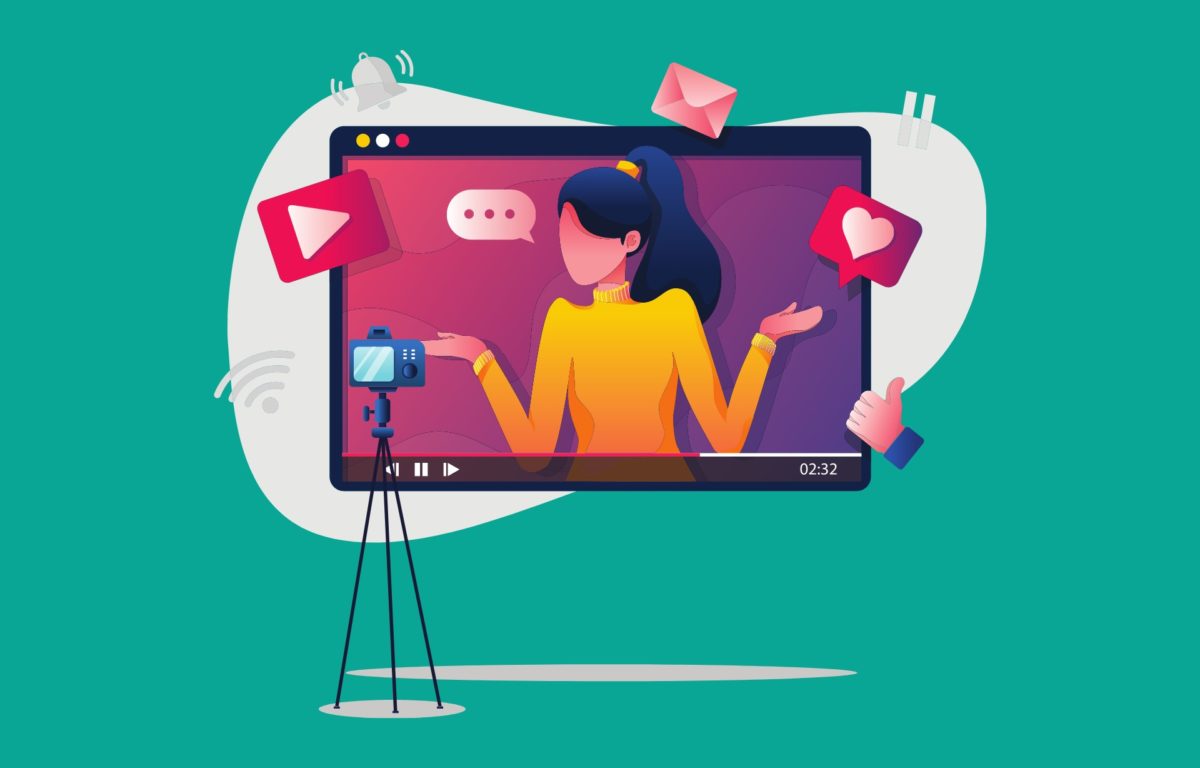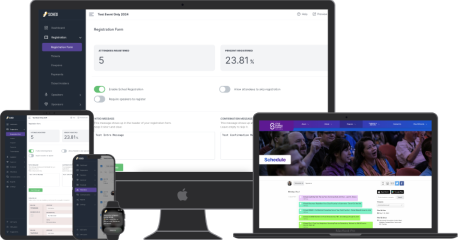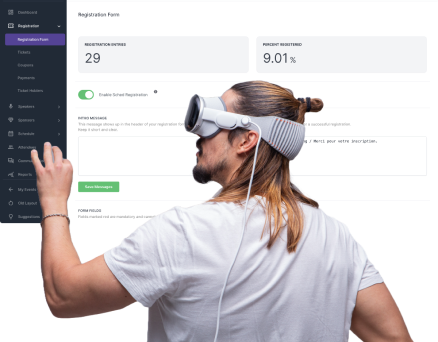Event influencer marketing is transforming how brands promote their events by tapping into the reach and credibility of influencers. These social media personalities, recognized in their respective niches, can significantly boost event visibility and engagement.
Leveraging the power of influencers allows businesses to effectively increase brand awareness, engagement, and sales.
In this article, readers will explore essential strategies and insights for executing successful influencer marketing campaigns for events.
TL;DR
Table of contents
-
- The choice of influencers is crucial for the success of an event marketing campaign. They must align with the event’s theme and target audience.
-
- A well-structured influencer brief is essential. Include a succinct overview of the company and product, stressing only the most vital information.
-
- Use creative influencer marketing ideas to make the event stand out. A captivating concept can generate excitement and engagement, ensuring the event reaches the intended audience effectively.
What Is Influencer Event Marketing?
Influencer event marketing involves partnering with individuals, known as event influencers, who have a significant presence on social media. These influencers have a dedicated audience and are recognized as experts or authorities in their niche.
The goal is to leverage their reach and credibility to promote events effectively.
Brands select influencers whose values and audiences align with their event goals. This alignment ensures that the partnership resonates with the target audience, enhancing the event’s visibility.
The key elements of influencer event marketing includes the following factors to consider:
- Reach: Influencers have large followings, providing extensive exposure.
- Credibility: Their audience trusts their opinions and recommendations.
- Engagement: Influencers can drive interaction with potential attendees.
This strategy is applicable across various events, from product launches to major conferences. Influencers might share posts, create content, or use their platforms to build anticipation, thus driving ticket sales and event awareness.
Engaging influencers for events often involves creating compelling narratives or experiences.
For instance, influencers might participate in the event itself, offering live coverage or exclusive previews, which adds a layer of authenticity.
Utilizing influencers can significantly enhance an event’s reach and impact. With tailored strategies, brands can maximize attendee interest and participation.
12 Top Benefits Of Using Influencers To Promote Your Event
1. Increased Visibility
Influencers can expose your event to a wider audience, enhancing its visibility and reach. This is crucial for attracting more attendees.
2. Credibility and Trust
Leveraging an influencer’s existing relationship with their audience can build trust in your event, increasing its perceived value.
3. Targeted Audience
Influencers often have specific audience demographics, allowing for targeted marketing efforts that resonate with potential attendees.
4. Engagement Boos
Engaging content created by influencers can foster interaction and excitement among your potential audience.
5. Cost-Effectiveness
Compared to traditional advertising methods, influencer marketing can often provide more value for your investment.
6. Local Reach
Working with local influencers can enhance the ability to attract attendees who are within proximity to the event venue.
7. Content Creation
Influencers often generate creative and engaging content that can be shared across multiple platforms, spreading awareness efficiently.
8. Social Proof
Influencers attending and promoting your event can act as social proof, encouraging their audience to join in.
9. Brand Alignment
Building partnerships with influencers who align with your event theme enhances brand consistency.
10. Diverse Formats
Influencers can promote your event through various content formats, such as videos, blog posts, and live streams, offering flexibility in marketing strategies.
11. Real-Time Promotion
Influencers can engage in live coverage, providing real-time promotion, and sparking last-minute ticket sales.
12. Feedback Loop
Influencers can provide valuable insights and feedback on your event’s perception, useful for future improvements.
7 Tips On How To Incorporate An Influencer Strategy At Your Next Event
1. Identify Key Influencers
Select influencers who align with the event’s theme and target audience. This ensures credibility and resonates with attendees.
Thorough research can help find suitable candidates.
2. Set Clear Objectives
Define the purpose of the influencer involvement, such as increased brand awareness or improved attendee engagement.
Align these objectives with broader event goals.
3. Invite Influencers as Guests
Consider inviting influencers to attend as special guests.
This gives them firsthand experience, making their content more authentic and engaging.
4. Offer Incentives
Provide incentives like monetary compensation, free products, or exclusive access to event features.
Ensure the offer is appealing to attract high-quality influencers.
5. Create Authentic Content Opportunities
Collaborate with influencers to produce content that feels genuine to their audience.
This might include behind-the-scenes access or exclusive interviews.
6. Monitor Performance
Track the effectiveness of the influencer campaign by measuring engagement, click-through rates, and conversion against set KPIs.
Regularly review these metrics.
7. Engage Pre- and Post-Event
Maintain communication with influencers before and after the event.
Encourage them to share teaser content beforehand and follow-up posts after, extending the campaign’s reach and impact.
Takeaways About Event Influencer Marketing
Identifying the right influencers is crucial. Brands need to align with influencers who resonate with their event’s theme and target audience.
Influencers can create a buzz that traditional marketing might not achieve.
Creating exclusive experiences for influencers can enhance event impact.
Such experiences can increase brand visibility, audience engagement, and even drive sales. It’s a strategy that often results in mutual benefits for brands and influencers.
FAQs
How To Invite Influencers To Your Event?
Inviting influencers requires a strategic approach. Begin by understanding the influencer’s interests and how they align with the event’s theme.
Personalization is key; create a compelling invitation that highlights the unique aspects of your event.
Provide clear details, including date, location, and purpose, and articulate the benefits they will receive from attending.
These can be exclusive networking opportunities or featured speaking roles.
Offer flexibility in response options, whether it’s a direct email, invitation letter, or a simple message on social media.
Use a formal tone if the influencer’s public persona demands it, and always be respectful of their schedule.
How To Choose The Perfect Influencer For Your Event?
Selecting the right influencer is crucial for reaching the desired audience. Start by identifying influencers whose followers match the demographic you intend to target.
Look at factors such as follower engagement rates, content style, and authenticity.
Tools like social media analytics can assist in evaluating these metrics.
Consider the influencer’s alignment with your brand values and the event theme.
Prior interactions with brands similar to yours can be indicative of a good match.
Opt for influencers with a genuine interest in your event rather than just those with the largest followings, as their enthusiasm will reflect naturally in their promotions.
How To Reach Out To Influencers For An Event?
Start by conducting thorough research to tailor your message effectively.
Personalize your communication by referencing specific content they’ve posted, demonstrating familiarity with their work.
Initial contact can be made through email, direct messaging, or influencer platforms.
Be clear about your event’s objectives and how the influencer fits into those goals.
Outline what is expected from them and what they can expect in return, such as compensation or specific brand partnerships.
This transparency builds trust and encourages a positive response.
Lastly, ensure availability for further discussions to address any inquiries or negotiation terms they might have.










